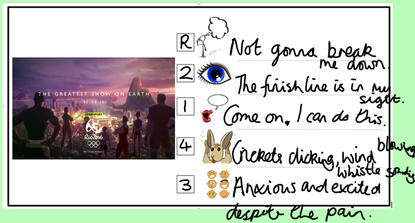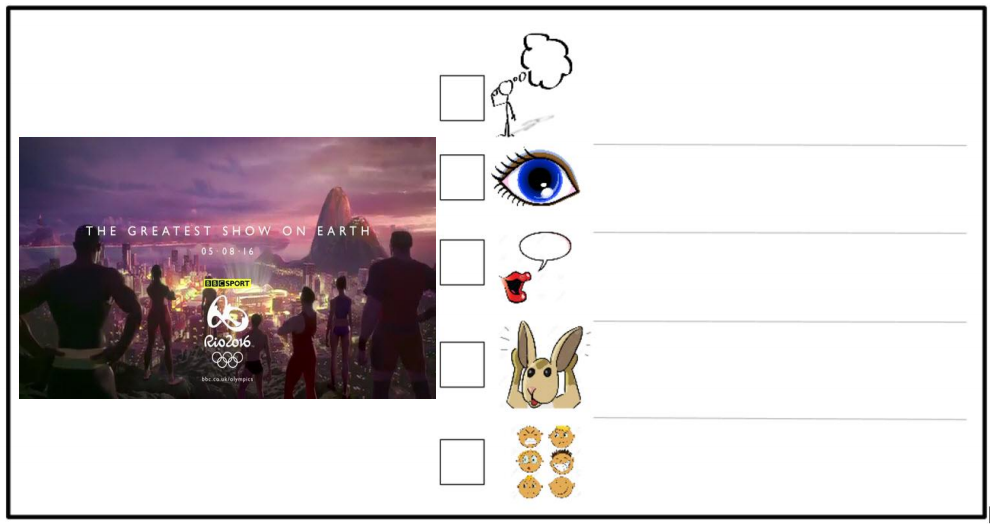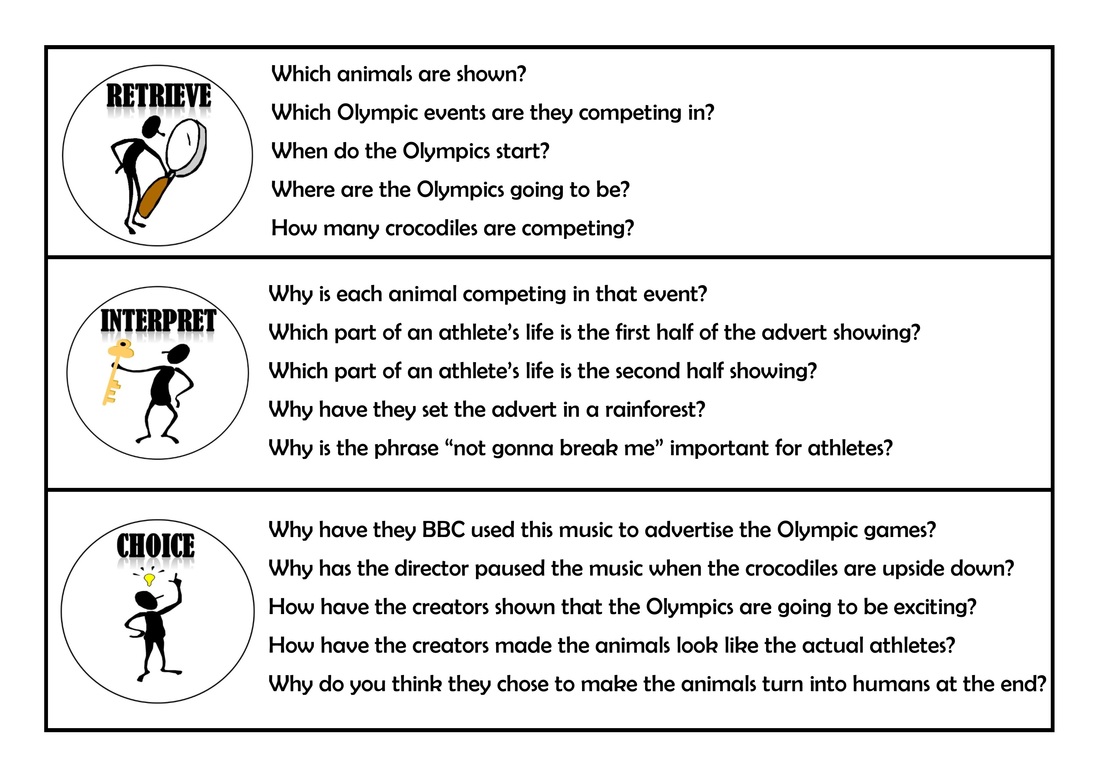Olympic senses poem resources from jo Payne
Resources from Jo Payne @MrsPTeach
Start by watching the video and discussing (using RIC questions?).
This poem is all about the senses, thoughts and emotions and is best modelled with the whole class before independent work.
Display planning image on the board and discuss each section.
Thinking - What the athlete is thinking (not "I think...")
See - What they can see - using adjectives if possible (not "I can see...")
Say - What the athlete would say - possibly to themselves under their breath
Hear - What they would hear (not "I can hear...")
Feelings - How the athlete would be feeling.
This poem is all about the senses, thoughts and emotions and is best modelled with the whole class before independent work.
Display planning image on the board and discuss each section.
Thinking - What the athlete is thinking (not "I think...")
See - What they can see - using adjectives if possible (not "I can see...")
Say - What the athlete would say - possibly to themselves under their breath
Hear - What they would hear (not "I can hear...")
Feelings - How the athlete would be feeling.
Discuss the point at which the poem is taking place.
It could be during training, final preparations, the moment before the event, during the event, after the event having won OR after the event having lost.
The example below is a class poem about the moment before the event begins. Children discuss in pairs what they would put in each line. Address any misconceptions (I can hear... I can see... etc!) and encourage further thinking/improving/thesaurus work before writing the sentence on the board. That child then models how the line should be said and the class repeat. Repeat with all 5 lines.
As a class decide which line would sound good as a repeated line - this poem using the line from the song in the advert as the repeat. Use an R in the box to represent this. Next, decide on an order for the other lines. Discuss this and reasons for putting it in that order. Finally, decide how often the repeated line is going to be repeated. It could be after every line, after a few lines or at the start and end only. Then practise saying the poem as a class with each line said in the way the child who suggested it modelled it.
It could be during training, final preparations, the moment before the event, during the event, after the event having won OR after the event having lost.
The example below is a class poem about the moment before the event begins. Children discuss in pairs what they would put in each line. Address any misconceptions (I can hear... I can see... etc!) and encourage further thinking/improving/thesaurus work before writing the sentence on the board. That child then models how the line should be said and the class repeat. Repeat with all 5 lines.
As a class decide which line would sound good as a repeated line - this poem using the line from the song in the advert as the repeat. Use an R in the box to represent this. Next, decide on an order for the other lines. Discuss this and reasons for putting it in that order. Finally, decide how often the repeated line is going to be repeated. It could be after every line, after a few lines or at the start and end only. Then practise saying the poem as a class with each line said in the way the child who suggested it modelled it.

Not gonna break me down.
Come on. I can do this.
The finish line is in my sight.
Not gonna break me down.
Anxious and excited, despite the pain.
Crickets clicking, wind blowing, whistle sounding.
Not gonna break me down.
Children could then write their own moment about a different event or a different point of an event using the PDF outline. They could write the poem up in full, including the repeat line where they wish it to go.
These could then be performed, displayed, posted on a blog - anything!
Come on. I can do this.
The finish line is in my sight.
Not gonna break me down.
Anxious and excited, despite the pain.
Crickets clicking, wind blowing, whistle sounding.
Not gonna break me down.
Children could then write their own moment about a different event or a different point of an event using the PDF outline. They could write the poem up in full, including the repeat line where they wish it to go.
These could then be performed, displayed, posted on a blog - anything!

